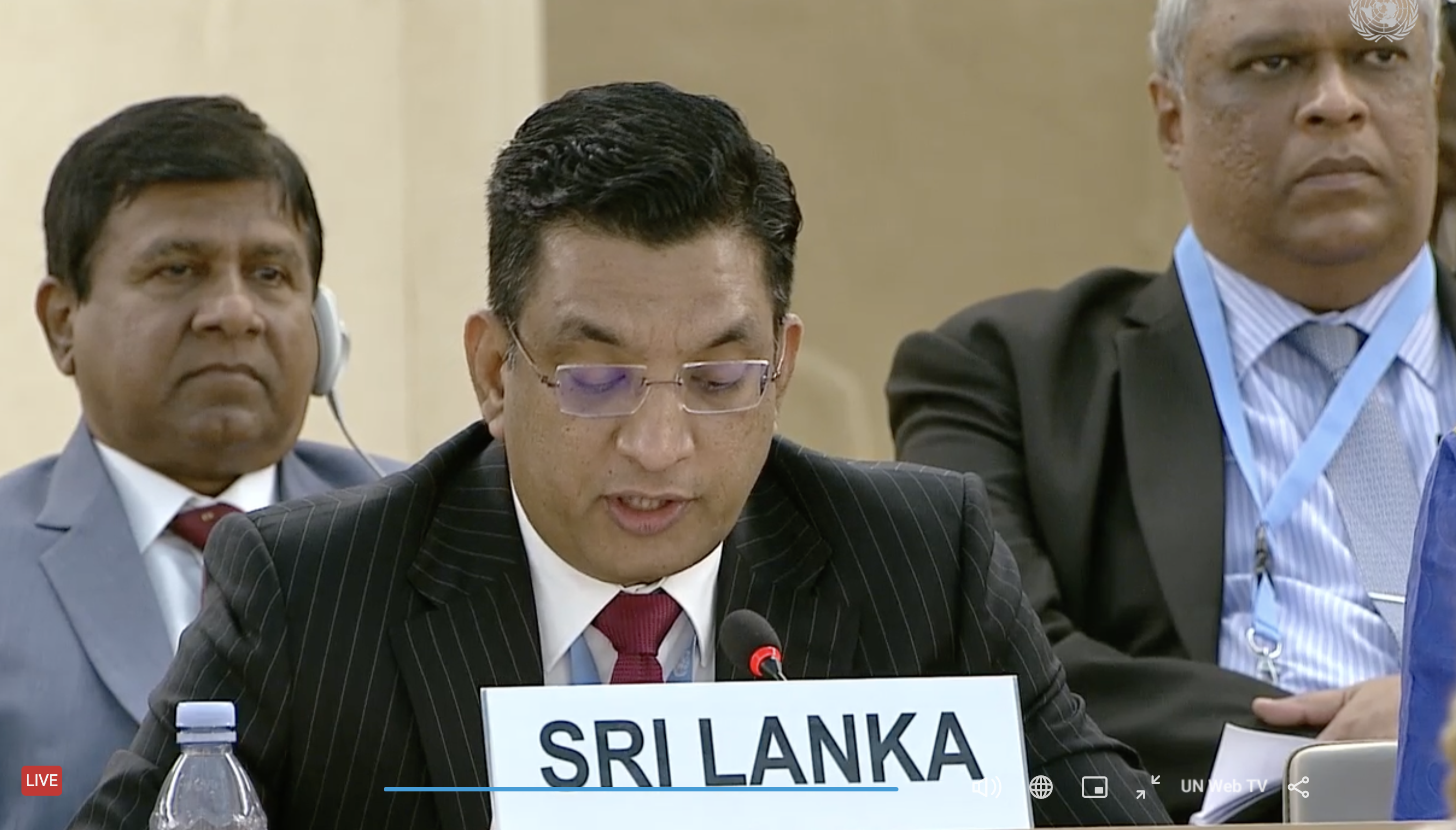
Sri Lanka’s foreign minister slammed an upcoming United Nations Human Rights Council resolution that is due to be voted on today and blamed the Tamil diaspora for “heavy lobbying” for such moves at the global body.
Speaking to Sri Lankan journalists this week, Ali Sabry reportedly claimed that the member states driving the resolution “are greatly influenced by domestic-level lobbying by pressure groups from the Sri Lankan Tamil diaspora”.
“This is not a fair reflection of the people’s will,” he claimed. “This is heavy lobbying. This is geopolitics.”
According to Economy Next, the minister went on to state that “neither the West nor the diaspora groups are ever satisfied with the steps taken by Sri Lanka” and they “are determined to perpetually keep the “small country” trapped.”
His remarks come despite more than 13 years having passed since a Sri Lankan military offensive killed tens of thousands of Tamil civilians, and not a single military or government official having been held accountable for the crimes committed. Instead, Sri Lanka has denied any rights violations have taken place and promoted officials accused of war crimes. Eelam Tamils have long maintained the massacres amounted to a genocide and called for an international accountability mechanism.
Sabry however told journalists that any such move, including through the UN resolution was a “targeted act against war heroes”.
“We cannot agree to this,” he continued. “We can’t do it even if we do agree”
He went on to claim that since the massacres of 2009 “the peace benefits have been enjoyed by everybody”.
The Sri Lankan minister also slammed the UN resolution’s mention of “economic crimes”.
“We are all agreed that economic reform is needed. But is that the specialisation of the UNHRC? That’s the area of the IMF and the World Bank. We have been perpetually put here. They’re interfering in everything, whether it’s within their purview or not,” he said.
Next they’ll say they need to investigate cricket, he added.
Read more from Economy Next here.
